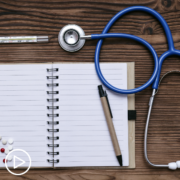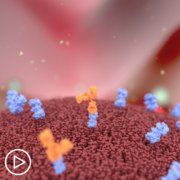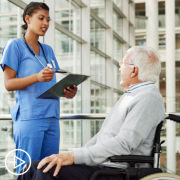How Can DLBCL Patients Benefit From Shared Decision-Making?
How Can DLBCL Patients Benefit From Shared Decision-Making? from Patient Empowerment Network on Vimeo.
What is shared decision-making, and how can it help diffuse large B-cell lymphoma (DLBCL) patients? Expert Dr. Amitkumar Mehta explains the process and shares key questions to ask about treatment and care.
Dr. Amitkumar Mehta is Director of the Lymphoma Program and CAR T Program and Medical Director of the Clinical Trials Office at O’Neal Comprehensive Cancer Center at UAB. Learn more about Dr. Mehta.
Related Resources:

DLBCL Treatment Approaches for Newly Diagnosed and Relapsed/Refractory Patients |

DLBCL Treatment and Research Updates Patients Should Know About |

|
Transcript:
Katherine:
What is shared decision-making, and how does it work?
Dr. Mehta:
Shared decision-making has evolved over the last couple of decades.
And exactly as we were talking about the treatment, this is – I always share with my patient that we are on your side, right? We are with you. We are part of your journey. And, of course, for anyone, this could be a brand-new journey, right? So, each person is different. Each person’s preference is different, right? In that case, when I have the details of whether it’s lymphoma or treatment, they also have input. They might have read somewhere. They might have a family member who had gone through the chemotherapy, and they have preferences, let’s say.
So, when we sit down and discuss that time, they also have an input on that. Write appropriate questions, you know. What is my diagnosis? What stage it is, right, whether it’s high risk or low risk? What are the potential for cure, right? What kind of chemotherapy you’re looking at, whether I have more options in that like clinical trial, right?
Yes, you said you were going to treat me with standard of care. Do I have an option of clinical trial? Like in DLBCL setting, R-CHOP, or R-EPOCH, which is the foundation of DLBCL treatment for so long. What is happening in the clinical trial is we are building on that foundation. We are building on the standard of care. So, there could be a potential that you are an eligible patient for X, Y, Z clinical trial, where you’re getting an added novel immunotherapy drug or a bispecific antibody.
Why you’re doing that to see whether we can improve upon whatever we have. So, in that, if patient is informed, they can also be a part of the conversation, right? It is just like when we go for, say, buying a car. It is not that a dealer is showing us a car, and we say, “Okay, I’ll go with it.” No, we say, “What color it is? I want this color. I want this seat. I want this model.”
I mean, that is a shared decision-making, right? And then we come to a conclusion. “Okay, this is the car that I prefer, I’m comfortable with, and I’m going to buy that.” It’s similar in cancer care.










